Defensive Cinema is a series devoted to films seemingly dismissed by the greater population. And me getting all defensive like and telling you why my opinions hold more water than yours.
"When this fire starts, it is very hard to put out. The tender boughs of innocence burn first, and the wind rises... And then all goodness is in jeopardy."
I understand any fan's disappointment over not getting closure to the classic series Twin Peaks. No new revelations, no Doppelganger Dale Cooper. And I certainly can't blame them for being angry at not seeing its many beloved characters back in their eerie, offbeat digs -- especially when in the place of that is the most depressingly dark incest drama you'll ever see. It's befitting then that the film opens with piercing screams as a television set is smashed to bits. Twin Peaks: Fire Walk With Me seems best suited to fans of the director's most ambiguous efforts. Those tuning in just for the coffee and cherry pie are about to get served something blacker than midnight on a moonless night.
David Lynch always saw Twin Peaks as a show about a girl, Laura Palmer. It's quite clear that when the series lost sight of her, it did (ever so slightly) derail. Once the mystery of her killer was solved, the series inevitably had to lose much of its compelling center. Pushing the focus in on Laura, as this "prequel" does, ultimately pushes the familiar setting into its most strange places, to the aid of some deeply disturbing and moving cinema, but to the loss of narrative ease and the characteristic charms of its TV origins. I'm content with that since it's another of Lynch's abstract art-pieces. His best films are something to experience, and despite this film's darkest recesses of innocence lost, it's one to lose yourself in. More often than not threads of the story seem senseless or random, and yet their placement, their staging, their overall essence render them completely captivating. No one turns Americana into atmospheric hell better than Lynch. We're not in Kansas anymore. We're WAY off the map.

Donna: Do you think if you were falling in space you would slow down after awhile, or go faster and faster?
Laura: Faster and faster. And for a long time you wouldn't feel anything... Then you'd BURST into fire. Forever. And the angels wouldn't help you, because they've all gone away.
Sheryl Lee gives a singular, pulverizing performance that surpasses anything we've seen from her as either Laura or Maddie on the series. She plays each of her scenes on the verge of a painful hysteria - a lost little girl and a madwoman confined behind her last shred of sanity, and her last days on earth. She extends her emotions beyond the obvious sympathy though: the fact that Laura's merely a child who has been sexually abused by the men of her idyllic small town for the better (worst) part of her life. Laura knows she has nothing left, even if she's so far been able to veil her consuming inner demons behind charity work and a spiraling drug addiction. She is a girl on fire whose only hope is to be extinguished, and perhaps the most grim notion of the film is that Laura knows, and occasionally desires, that her end is near.

David Lynch's directorial feat is breathtaking all the while offputting. The content is hideously ugly yet masked behind layers of visual arrest, and Angelo Badalamenti's masterful mix of melancholy jazz fusion consistently punctures through to the film's bleak heart. This film's no different from Lynch's infinitely more praised Lost Highway or Mulholland Dr., as it channels lives in the balance like the static fuzz of an electrical current. Images and characters speak in riddles, and the audience becomes a confused passerby in Laura's tragic dual dimensions. The picture postcard perfection of Twin Peaks shreds through to each of her chilling alternate worlds: the photo of a doorway that leads back to the bedroom where her nightmares began, a Canadian bar where she becomes a teenager transformed for male pleasure, and a Red Room which holds all of Laura's misery, madness, and maybe her only existence of hope.

Fire Walk With Me is at once a harrowing horror film, an oddball family drama, a surrealist satire, and above all the devastating attempt to peel back the layers of a homecoming queen whose life and death has been "wrapped in plastic." If the series is about the pieces of a town left in mourning, Fire Walk With Me is about the primal scream that shatters it.
--There's even more Lynch-inspired love for Laura Dern in my latest "Signatures" post at Film Experience. I promise... no more talk of incest, just huffing paint.




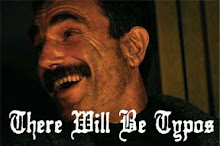
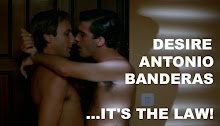
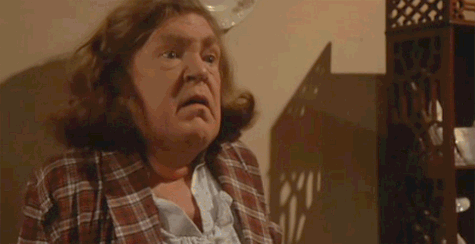
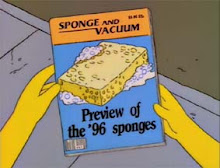
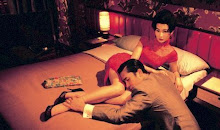



7 comments:
Loved this! I even wrote a blog entry about it.
That's a terrific summation of the film, Adam, and I think it's one of Lynch's finest. I wasn't one of those fans of the TV series who was disappointed by the seediness of the film. Rather, I came to it via Lost Highway (my favourite Lynch film, and equal favourite film of all time). I was so blown away by Lost Highway that I rented everything Lynch I could find. My favourite scenes in the film are the opening sequence when we see Laura very much alive, and that bar scene where she demonstrates to Donna how far she has fallen, and Donna mimics her.
I don't think Lynch gets enough credits for his scripts. Granted it's the way he directs them that really makes the scenes unforgettable, but those bits with Laura trying to keep Donna from becoming like her, falling in space, etc... they have a sadness and truth to them that almost never come across well in films that deal directly with child abuse. It's a perfect companion to "Lost Highway" too. He has a way of putting a characters fractured psychology on full display which is I think what makes his work so transcendent and unique. We don't always know much about his characters but in another respect we see them entirely. Even "The Straight Story" takes its paces and lyrical qualities entirely from Alvin's age and inner turmoil.
He really does get away with some amazing dialogue, doesn't he Adam? Things that might seem conceited or contrived in the hands of another. Even that quote above ("When this fire starts, it is very hard to put out...") puts my hairs on end. It's poetic, banal and profound all at the same time, and it hits its mark.
I always felt that Lynch had a deep humanistic streak, despite the dark violence of his films, and that was before I found out about his spirituality. We see that in Fire Walk With Me with his tragic and compassionate portrayal of Laura Palmer and all his films.
The perspective that Lynch seems fond of is the subjective view of his protagonists, as they see reality, in their confounded states. Therefore, in Lost Highway, we see a jazz musician transform into a mechanic.
it's another amazing film of david lynch!
when i first saw it, i remember of thinking that the sequence of destroying the tv set it was a kind of a warning, it was lynch announcing that this not a tv show, this is film!
:)
i really like to read your blog!
sorry for my poor english.
To me FWWM is not really an incest drama nor is it " blacker than midnight on a moonless night." Lynch fans seem intent on making it into one in order to deny certain elements of the story they may find silly any other way. Lynch may even claim such a thing after the film's poor reception. But having watched TP in its first run and many times since, and read the interviews at the time, I truly believe that the fantasy for this story is real. Yes it is a dark fantasy but one that possesses one of the most brilliant lights of love, hope and faith that Lynch has ever graced the screen with.
This film was proof of what the series had told us: BOB wanted Laura. The fact that he was using her father to abuse her makes the film and story take on an added level of tragedy. If Laura had really known it was Leland and not BOB I doubt her pain would be so genuine when she sees him leaving the house and learns that he may be BOB. Likewise, I doubt that she would be so desperately trying to find out who BOB is if she tried to give her father a fake identity in the first place to protect him and her.
BOB is real. Laura was right when she told Harold this. I have no doubt that the scene in the train car was meant to prove this to us. The fact that Laura saw BOB and not Leland made him want her all the more "I never knew you knew it was me. I want you." The diary proved to BOB that Laura knew it was truly him and it was after the pages had been ripped from the diary that the White Lodge forces tried to offer her help.
This film shows us how Laura was saved from a fate worse than death: To become BOB was her true fear. She welcomed death just as Jesus said not to fear He who can destroy the body but to rather fear He who can destroy both the body and the soul. Had she invited BOB inside she would have suffered far worse and potentially been damned.
The fact that BOB was able to use Cooper to make Laura stumble by not taking the ring is a bold move by Lynch, showing the true hero of the series was always Laura and not Dale.
She was meant to have that ring. An Angel freed Ronette's hand to help a one-armed man, who had seen the face of God, open the train car doors and throw it in. The Angel also freed Laura's hands to take it. They had not abandoned her as she had feared.
This salvation gives the film it's ultimate power and the ending is the most beautiful and hopeful that Lynch has ever given us. Laura's joy is beautiful just as her journey to the White Lodge (Heaven). Some believe that the Angel appears in the Red Room because of Cooper's presence. Yet Lynch has said that the Red Room changes depending on who enters it. Laura is the new person there. The Angel comes for her. She triumphed over both BOB and Cooper.
If you look at the film this way, the darkness we see only shows the beauty of the light. The contrast is there as is the final triumph of a girl's spirit who had survived Hell and no longer needed to return there.
Post a Comment